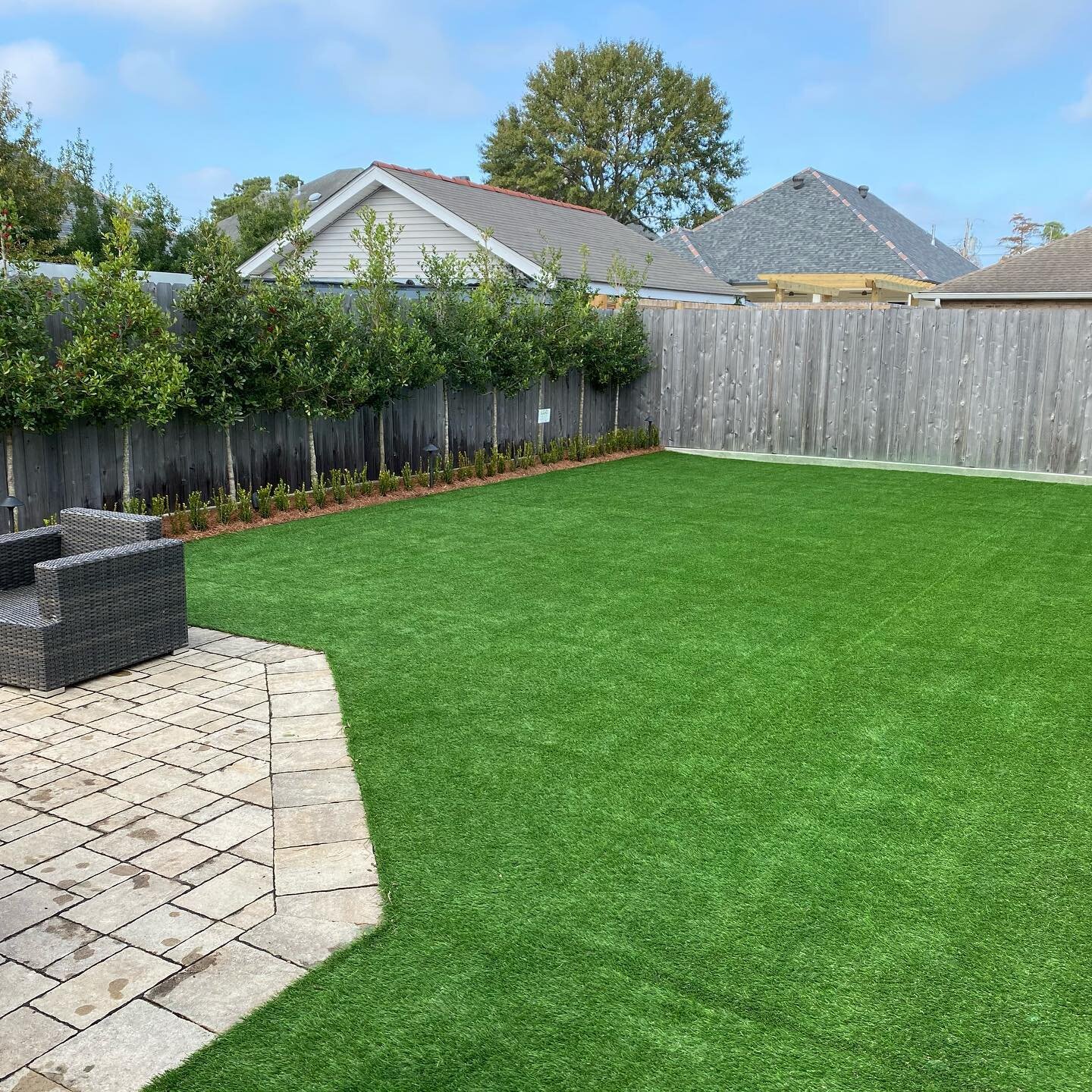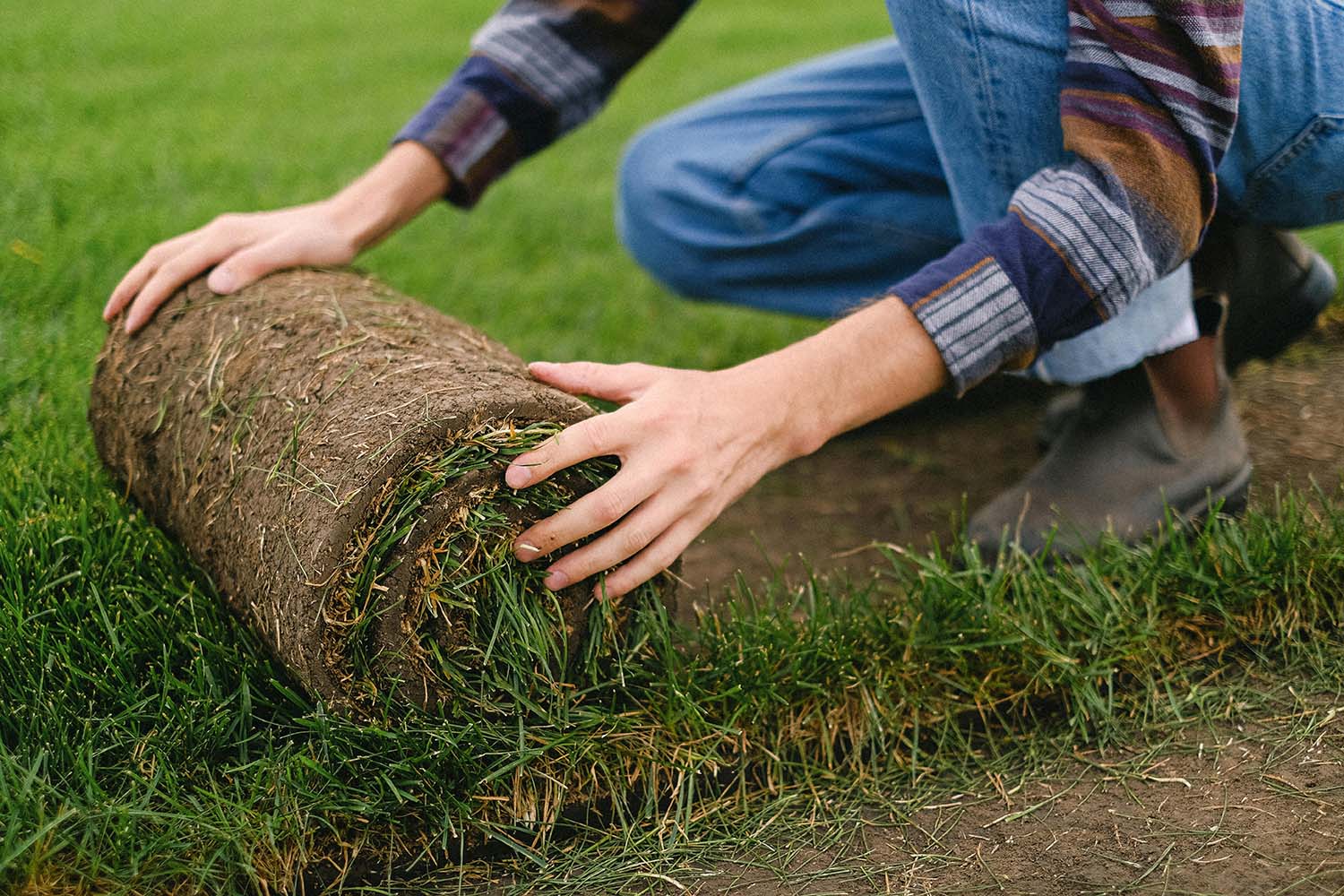Budget-Friendly Turf Installation Phoenix AZ for a Easy-Care Lawn Solution
Budget-Friendly Turf Installation Phoenix AZ for a Easy-Care Lawn Solution
Blog Article
Look Into the Environmental Benefits of Opting for Artificial Turf Solutions
The adoption of artificial lawn solutions offers a compelling possibility to deal with pressing ecological obstacles. By considerably decreasing water usage and minimizing the application of damaging chemicals, these choices not only advertise sustainable landscaping yet likewise shield neighborhood ecological communities. Moreover, the lower carbon footprint related to reduced maintenance tasks adds to a much more sustainable method to land monitoring. The effects of these advantages extend beyond plain preservation initiatives, raising concerns regarding their long-lasting influence on habitat conservation and total environmental equilibrium. Exploring these measurements exposes a complex interaction worth thinking about.
Water Conservation Perks
Among one of the most substantial advantages of synthetic grass is its capability to save water. Conventional turf yards need substantial irrigation, particularly in locations vulnerable to drought or water restrictions. On the other hand, synthetic grass does not need watering, substantially lowering the general need for water sources. This function is especially advantageous in deserts where water shortage is a pressing worry.
By getting rid of the requirement for normal watering, synthetic grass contributes to lasting landscape practices and helps alleviate the environmental effect of too much water intake. The preservation of water prolongs to the decrease of drainage, which can lead to soil erosion and river air pollution.
Additionally, the setup of artificial turf enables communities and homeowners to allot water sources more efficiently, focusing on crucial uses such as alcohol consumption water and farming. The change in the direction of synthetic grass not just advertises accountable water use yet additionally lines up with wider environmental goals focused on preserving natural deposits.
As areas progressively focus on sustainability, the water preservation benefits of synthetic grass present a compelling instance for its fostering in residential and commercial landscaping projects.
Minimized Chemical Use
The change to synthetic grass considerably decreases the dependence on chemical treatments commonly made use of in all-natural turf upkeep. Conventional grass administration typically includes the application of fertilizers, chemicals, and herbicides to advertise growth and control parasites. These chemicals can present threats to human health and wellness, local wild animals, and the environment, contributing to soil and water contamination.
On the other hand, synthetic lawn eliminates the demand for these damaging materials. Once set up, it requires very little maintenance, mainly being composed of regular cleansing and infrequent infill replenishment. This reduction in chemical use not only benefits the prompt setting however additionally adds to wider environmental stability. By lessening the launch of synthetic substances into the ecological community, synthetic grass promotes much healthier dirt and water systems.
Additionally, the lack of chemical runoff related to man-made turf setups aids protect local waterways from contamination, supporting water life and preserving biodiversity. Arizona turf. As areas significantly focus on sustainable techniques, deciding for synthetic grass presents a practical service that aligns with ecological preservation objectives. With this shift, residential property proprietors can appreciate rich eco-friendly rooms without endangering eco-friendly health and wellness, leading the way for a more sustainable future
Lower Carbon Impact

Additionally, the installment of synthetic lawn can cause significant water conservation. Natural grass require substantial amounts of water for irrigation, which not just contributes to the carbon impact related to water removal and therapy however also stress neighborhood water resources. In contrast, synthetic useful content grass requires minimal maintenance, calling for no watering, thereby substantially reducing water use and its associated energy prices.
In addition, the durability of synthetic grass adds to its lower carbon effect. With a life-span of as much as 15 years or more, the demand for constant replacements is decreased, leading to much less waste and reduced power intake in production and throwing away standard yard choices. On the whole, artificial lawn offers a lasting choice for ecologically aware landscaping.
Environment Conservation
Environment conservation is a crucial consideration in the debate over landscape design options, particularly when comparing artificial lawn to all-natural grass. Natural yard yards commonly call for extensive upkeep, consisting of the use of plant foods, pesticides, and herbicides, which can negatively impact neighborhood communities. These chemicals can leach right into the dirt and waterways, damaging indigenous vegetation and fauna and disrupting neighborhood environments.
In contrast, fabricated grass presents a possibility to lower the environmental impact of landscaping. By choosing for synthetic lawn, property owners can minimize the interruption of all-natural habitats related to typical yard care practices. Synthetic grass removes the requirement for hazardous chemicals, consequently protecting close-by wild animals and preserving the honesty of surrounding environments. The installation of fabricated lawn can lead to the conversion of former grass areas right into more biodiverse landscapes, such as pollinator gardens or native plant locations, which can sustain neighborhood wildlife.
Inevitably, the shift to synthetic grass not just saves water and minimizes maintenance efforts but additionally cultivates a much more unified connection between human activities and the natural surroundings, promoting habitat conservation while doing so.
Long-Term Sustainability
Long-lasting sustainability is a vital consider assessing the advantages of fabricated lawn over standard turf lawns. Among one of the most substantial advantages of synthetic grass is its toughness; it can last as much as 15-20 years with minimal maintenance, whereas natural lawn needs regular reseeding and replacement. This longevity lowers the demand for consistent resources, such as water, plant foods, and pesticides, which are important for preserving a healthy and balanced turf yard.
Furthermore, fabricated lawn contributes to a decrease in carbon emissions related to yard care equipment. Typical grass usually need gas-powered lawn Visit Website mowers, trimmers, and blowers, every one of which add to air contamination. Turf installation phoenix az. On the other hand, synthetic grass gets rid of the demand for such equipment, advertising a cleaner atmosphere
Additionally, the manufacturing of synthetic turf significantly utilizes recycled next materials, improving its sustainability profile. As suppliers adopt eco-friendly practices, the ecological footprint of fabricated lawn remains to decrease.

Conclusion
The adoption of synthetic grass services provides considerable ecological benefits, consisting of considerable water conservation, decreased reliance on damaging chemicals, and a lower carbon footprint. Fabricated grass help in maintaining all-natural environments by lessening land disturbance and advertising lasting sustainability via the usage of resilient materials. Jointly, these elements emphasize the potential of synthetic grass to add positively to environmental health and wellness and supply a viable alternative to typical landscaping methods in a significantly resource-conscious world.
In contrast, fabricated turf does not require watering, substantially minimizing the general demand for water resources. By lessening the launch of artificial substances right into the ecological community, synthetic grass advertises healthier soil and water systems.
In addition, the installation of fabricated turf can result in substantial water preservation. In comparison, artificial grass needs very little maintenance, needing no watering, thus significantly decreasing water usage and its connected energy prices.

Report this page